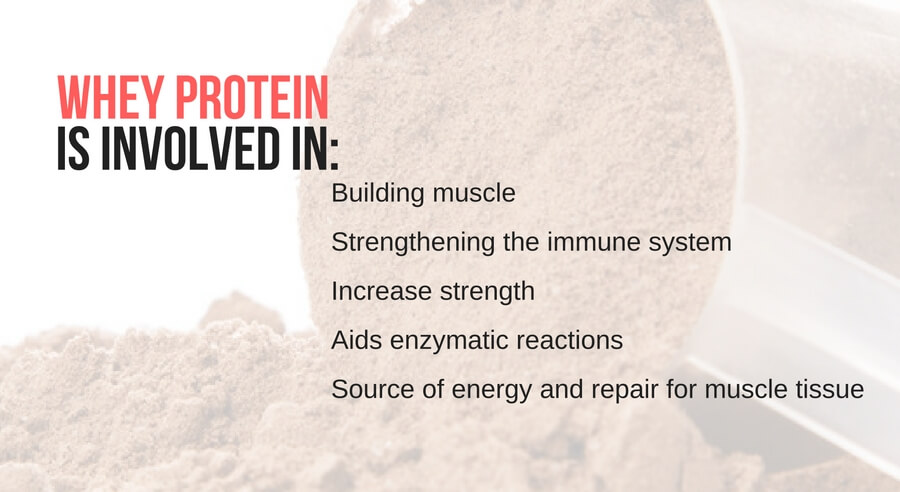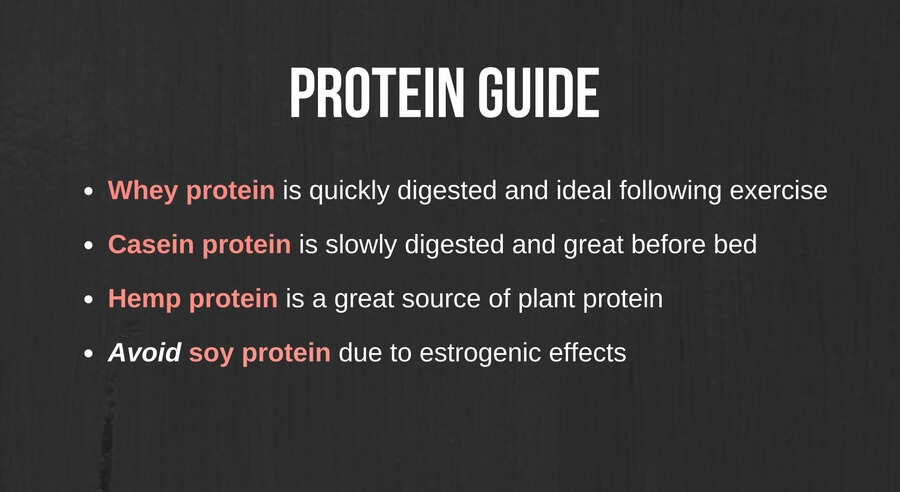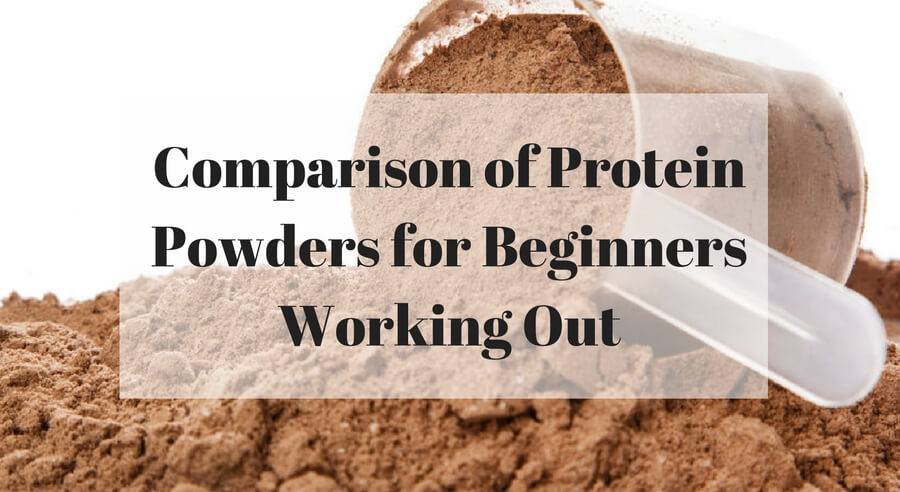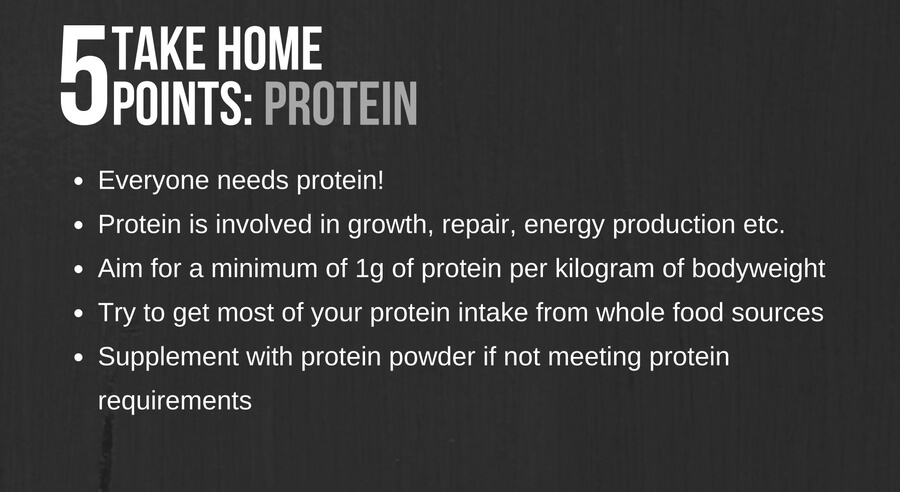What is protein?
Which type of protein is good?
Do I need protein?
These are all questions that beginners to working out ask themselves…
The word protein is thrown around so much online nowadays, yet so few actually understand what it is and why it is needed. Protein makes up part of the structure of every cell and tissue in your body, including your muscle, internal organs, tendons, skin, hair, and nails.
On average, protein comprises about 20% of your total body weight.
Protein is needed for:
- Growth and formation of new tissue
- Tissue repair
- Regulating many metabolic pathways
- Fuel for energy production
- Makes almost all of the body enzymes as well as various hormones (adrenaline and insulin) and neurotransmitters
- Maintaining optimal fluid balance in tissues, transporting nutrients in an out of the cells, carrying oxygen and regulating blood clotting
Protein is a main component of the diet.
Protein is essential for growth and development.
It provides the body with energy as each gram of protein is equal to 4 kcal of energy.
Protein stimulates your metabolic rate, which means it makes your body more efficient at burning fat.
It also helps balance blood sugar preventing any sugar cravings, and keeping you lean.
It is recommended that you get most of your proteins from whole food sources before resorting to protein supplements.
There Are Many Types Of Proteins For Beginners, Each Having Unique Properties
Whey Protein:
Whey protein is the most common type of protein and made as a byproduct of cheese production. It is quickly digested and ideal to use after a workout. There is an increase demand for protein after exercise to begin the muscle repair process.
Whey protein boasts the highest biological value of all sources of protein, which means it is very easily absorbed by the digestive system.
Use: following exercise since it is quickly digested.
Whey protein is involved in: building muscle, strengthening the immune system, increased strength, aids enzymatic reactions, source of energy and repair for muscle tissue.
Casein Protein:
Casein protein that gets broken down and absorbed by the stomach and intestines at a slower rate relative to whey protein.
The slow absorption of will help sustain elevated amino acid levels over longer periods of time, making it an ideal protein source for before exercise and especially before bed, feeding the body as you sleep.
Casein is extracted through filtration, increasing the amount of nutrients it contains. It is also very high in l-glutamine, an amino acid very important for the health of the gut, the digestive tract, and for muscle growth.
Use: before exercise or before bed since it is absorbed slowly.
Hemp Protein:
Hemp protein is a great source of plant protein and contains a complete amino acid profile. It is lactose free so it is a great option for those that are lactose intolerant. Hemp protein is highly digestible (although not as digestible as whey protein).
Hemp protein contains high amounts of globulins and albumin, which are two of the three most common types of protein found in the human body. It is also high in the amino acids arginine and histidine.
Hemp protein provides EFAs omega-3 and omega-6, so it has anti-inflammatory effects as is great for memory and concentration. Hemp is also one of few sources of gamma linolenic acid (GLA), an important omega-6 fat. Due to its high fiber content, hemp protein helps lower cholesterol.
Use: ideal for vegetarians and vegans at any time of day.
Egg Protein:
Protein from eggs is one of the best forms of natural protein. The white of the egg contains the majority of the protein and is readily digested and absorbed. Egg Yolk’s provide healthy fats, as well as highly bioavailable iron, riboflavin, folate, vitamins B12, vitamins D, vitamin E, and choline (which enhances strength and brain function).
Use: mornings as very nutrient dense and starts day off great!
Rice Protein:
Rice protein is ideal for those looking for a vegetarian source of protein. Since other forms of protein are made from dairy or soy, which can lead to digestive problems, rice protein is easily digested. Rice protein is also completely vegan and free of gluten.
Although rice is mainly looked at like a carbohydrate, like many other grains, it does have amino acids, which make up proteins. The disadvantage of rice protein is that it tastes bitter or chalky, and that it is not a complete protein.
Use: ideal for vegetarians and vegans at any time of day.
Soy Protein:
Soy protein is a protein made from soybeans. It is a source of non-animal and non-dairy protein. However, soy protein powders are high in isoflavones, which act as weak estrogens once they are inside your body and can lead to hormonal imbalances. High soy intake has been shown to increase the risk for cancer, so we do not advise the use of soy protein.
Use: Not recommended for use due to estrogenic effects.

Protein Guide:
- Whey protein is quickly digested and ideal following exercise
- Casein protein is slowly digested and great before bed
- Hemp protein is a great source of plant protein
- Avoid soy protein due to estrogenic effects
Do I need protein as a beginner to work out?
Given the important role(s) that importance of protein in the body, it is recommended to include it in your day to day meal plan.
How much protein is needed is still up for debate…
For an average individual 0.5 grams per pound of lean body weight can be suggested.
But.
In the bodybuilding community, it is suggested to consume 1 gram of protein per pound of bodyweight, if your goal is to put on muscle.(Click here to calculate your protein intake)
Whereas, according to Harvard Medical School, the Recommended Dietary Allowance (RDA) for protein is 0.8g or protein per kilogram of bodyweight.
So what does that mean?
So a minimum of 1g of protein per kilogram of bodyweight is a good amount.
It is important to note that there an individual differences between people with respect to their protein needs.
Simply because:
Factors such as genetics, physical activity levels, and digestive health all influence how much protein someone requires.
If you are interested in learning how much protein you require to reach your goals, we can build you a custom meal plan (Click here to get started). Each plan is customized to your body’s needs, so we outline exactly how much protein to eat.
Below is a image listing 5 important facts about protein:
5 Summary Points:
- Everyone needs protein!
- Protein is involved in growth, repair, energy production, etc.
- Aim for a minimum of 1g of protein per kilogram of bodyweight
- Try to get most of your protein intake from whole food sources
- Supplement with protein powder if not meeting protein requirements


